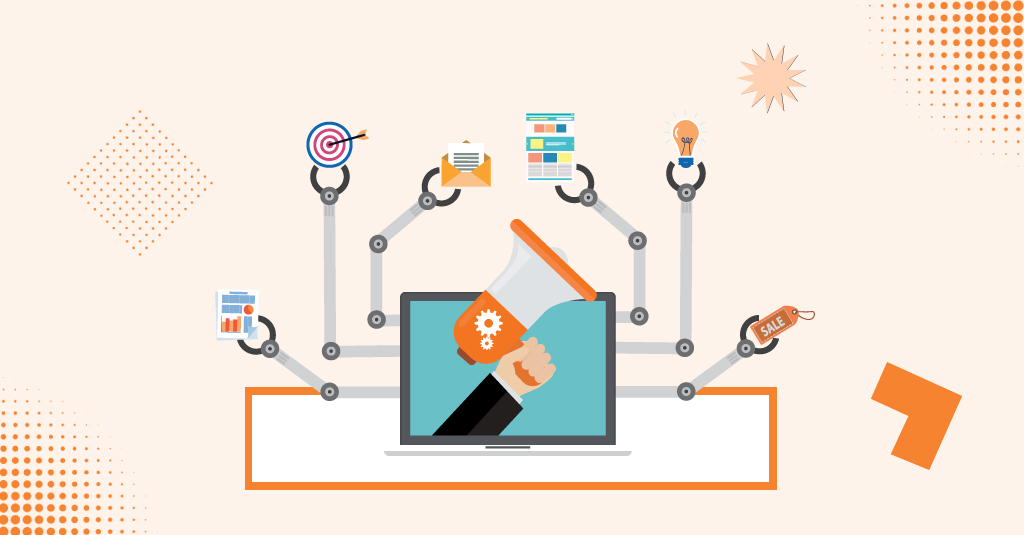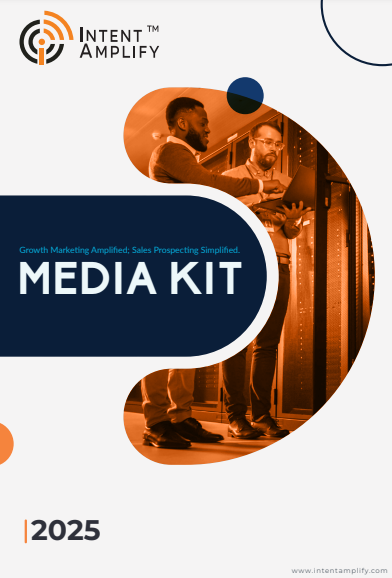
Impact of B2B Marketing Automation on your brand in 2024
- Last updated on: January 18, 2024
Think about it, had there not been an email marketing tool, how would you practically send emails to so many people? That’s just one example of how b2b marketing automation has taken its place (an important one) in the vast field of marketing – particularly digital marketing. But wait, automation is a lot more than the ease with which you send and receive bulk emails. It’s also the precision, the time saved, and the resultant ROI. It lets you invest your energies into creative and strategic tasks rather than spending time on mundanely manual activities. With that as our prelude, let us dive deeper into marketing automation and how it will potentially affect your marketing efforts.
What is (The More Technical Definition Of) B2B Marketing Automation?
The main purpose of marketing automation software is to effectively capture, evaluate, and nurture leads and accounts, ensuring they are matched with the most suitable sales team. It does so by streamlining marketing tasks through workflows and triggers to boost team productivity. It lets your ongoing engagement through sales and/or marketing efforts facilitate the success of closing deals.
Consider account-based marketing – it is one of the critical areas of B2B marketing that can greatly benefit from automation. Marketing automation can help ABM in the following ways:
- Streamlining Account Identification and Targeting.
- Personalizing the Buyer Journey
- Automating Repetitive Tasks
- Measuring and Optimizing ABM Campaigns
- Improved Collaboration between Marketing and Sales
You can streamline processes, personalize the buyer journey, measure and optimize campaigns, and improve collaboration between marketing and sales. This ultimately leads to increased efficiency, higher engagement, and more successful ABM campaigns.
Without automation, B2B marketers will find this challenging.
Which marketing activities can benefit from B2B automation?
Many B2B marketing activities can benefit from automation, especially those that are repetitive, time-consuming, or require personalization. Here are some key areas where automation can make a big impact:
Lead Generation:
- Lead capture forms: Automate form processing, lead scoring, and distribution to the sales team.
- Landing pages and website personalization: Dynamically adjust content and offers based on visitor behavior and demographics.
- Retargeting ads: Follow up with website visitors who haven’t converted using targeted ads on various platforms.
- Social media management: Schedule posts, engage with followers, and run social media contests efficiently.
Lead Nurturing:
- Email drip campaigns: Deliver personalized email sequences based on specific triggers and lead behavior.
- Content recommendations: Suggest relevant content to website visitors and email subscribers based on their interests.
- Webinars and online events: Automate registration, reminders, and follow-up communication for events.
Personalization:
- Personalized email marketing: Address each recipient by name and tailor content to their specific needs and interests.
- Dynamic landing pages: Create personalized landing pages that resonate with each user’s unique situation.
- Website personalization: Adapt website content and offers based on visitor behavior and geographic location.
Other Marketing Activities:
- Social media listening and management: Monitor brand mentions and respond to customer inquiries.
- Marketing reporting and analytics: Automate data collection and analysis to track campaign performance and identify areas for improvement.
- A/B testing: Test different marketing messages, design elements, and calls to action to optimize results.
- Customer relationship management (CRM): Streamline lead management, communication with prospects and customers, and sales pipeline management.
Examples of marketing automation tools
The most popular tools in the market currently include the following:
HubSpot: Your all-in-one marketing sidekick, from crafting engaging content to nurturing leads through email and social media. HubSpot helps you personalize customer experiences and streamline your marketing efforts.
Salesforce: The data powerhouse of CRMs. Analyze and organize everything from marketing to sales with ease, thanks to seamless integrations and insightful reports. Salesforce can handle any size of business.
Pardot: Salesforce’s marketing automation champion. Pardot works hand-in-hand with Salesforce CRM, keeping your marketing and sales in perfect sync. No more pesky unsubscribed contacts in your marketing campaigns!
How will Marketing Automation Impact your brand in 2024
In 2024, the impact of automation in B2B marketing is predicted to be even more significant than before, shaping the landscape in transformative ways. Here are some key areas where automation is making a big impact:
Hyper-personalization:
- AI-powered automation enables highly individualized experiences for each prospect and customer based on their unique needs, interests, and behaviors. This can be achieved through personalized content, offers, and communication on various channels.
- From dynamic landing pages and chatbots to tailored email content and targeted social media ads, automation allows marketers to deliver the right message at the right time, leading to increased engagement and conversion rates.
Predictive marketing and lead scoring:
- Advanced algorithms analyze vast amounts of data to predict which leads are most likely to convert. This allows marketers to prioritize their efforts and focus on the most qualified leads, driving higher ROI from marketing campaigns.
- Lead scoring models can be refined continuously, ensuring they stay relevant and effective in a dynamic B2B environment.
Efficiency and productivity:
- Automation takes care of repetitive tasks like lead nurturing, email marketing, and social media management, freeing up valuable time for marketers to focus on strategic initiatives like content creation, campaign planning, and building relationships with key accounts.
- This improves overall marketing efficiency and allows teams to do more with less, maximizing their impact within budget constraints.
Data-driven decision-making:
- Powerful analytics tools within marketing automation platforms provide real-time insights into campaign performance, lead behavior, and customer engagement. This data empowers marketers to make data-driven decisions about their marketing strategies and optimize campaigns for better results.
- A/B testing and real-time monitoring allow for continuous improvement and ensure marketing efforts are always aligned with audience preferences and market trends.
Challenges and Considerations:
Despite the immense potential, there are still challenges associated with B2B marketing automation in 2024. Some businesses might grapple with:
- Complexity of implementation: Choosing the right platform and integrating it with existing systems can be a complex process.
- Talent and expertise: Utilizing advanced automation effectively requires specific skills and training for marketers.
- Maintaining human touch: While automation plays a crucial role, it’s essential to not lose sight of the human element in B2B relationships.
Overall, the impact of automation in B2B marketing in 2024 is positive and far-reaching. It offers numerous benefits in terms of personalization, efficiency, data-driven insights, and predictive capabilities. However, navigating the complexities and maintaining a human-centric approach is key to leveraging this technology effectively and maximizing its impact on B2B marketing success.




